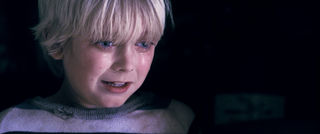Trauma
What the film Altered Minds Reveals about Family Secrets
Here's what happens to a family when their secrets unravel
Posted January 26, 2016

‘Altered Minds’ is a psychological thriller about family secrets, the CIA, psychiatry, brainwashing, and repressed memories (the film is available on demand from all carriers). In part two of my interview with writer-director Michael Wechsler, I ask about his take on family secrets and if the family at the center of his film can truly be saved. You can read part one of my interview which focuses on brainwashing and trauma here.
PART TWO
How common do you think family secrets are?
Well I don’t believe there is a family without secrets just like I don’t believe there is such thing as an individual without secrets. There are some “secrets” that are dangerous and can inflict tremendous damage if left unexposed or untreated like a cancer. Conversely, I believe there are secrets that one could call “benign” that left unearthed won’t have any long term consequences on the family.
The kinds of secrets in Altered Minds are the malignant, stage 4, kind that destroy families and lives. Do I think these are common to families? Hopefully not! Do I hope people watch this film and reflect on their own lives wondering if they’ve been the product of malignant secrets kept behind their homes closed doors? Well if the film helps them to see how certain things hidden inside their homes were ultimately very destructive, which could lead to a better understanding of their own upbringing, I guess that’s a good thing.
Do you believe family secrets should be exposed when everyone is of age or should sleeping dogs lie?
I don’t think the kinds of cancerous secrets that are featured in my film should be swept under the rug, but I also don’t know when and how one chooses to reveal without risking implosion. My sense is that with these kinds of secrets, the longer they are kept hidden, the more powerful and long-lasting the damage will be once revealed.
There are so many toxic secrets I believe that live latently but still resonate within families—infidelity, physical abuse, sexual abuse, addiction, to name a few—and I just don’t believe that one can expect a happy outcome regardless of when exposed. One who is hiding these kinds of secrets must accept that what has been done will come back at them regardless of when and how they share them with their families. I do, however, feel that morally and for the longer lasting health of the individuals, these secrets should come out sooner rather than later.

Would the Shellner's benefit from family therapy or are they too far gone?
By the time the film reaches its conclusion, a lot of the secrets as well as the mystery of the repressed household are answered. The implosion has happened and the truth of this family is revealed for everyone to see. I think if this really happened therapy would be more about repairing the damaged trust and trying to pave a path for reconciliation, acceptance and forgiveness. No matter how egregious a secret may be, the important thing is that it finally came out so everyone can know the beast that has been living with them and tearing them apart inside. That knowledge is very powerful and liberating I would think, and would enable the family to either choose to move forward or not. But at least they would find the truth.
What do you think happens to the family dynamics after the film is over? What would a family dinner look like a month later?
That’s a question many people have asked me after seeing the movie. Where does this family go from here? I guess it depends on whether you’re an optimist or a pessimist. I always love movies that end on a question rather than a definitive answer. This movie leaves that to the viewer. I would rather not answer that question because I’m not sure of the answer myself. I left it vague because I really don’t know. When you realize that your family has been living in the shadows of a painful lie, how would that family dinner go here on in? Some family’s could bury it and move on, others would just continue to implode and never see each other again.
What can psych majors learn from the film that they are unlikely to learn in a class or textbook?
One can learn a ton from a wonderful psychology teacher or a smart textbook but my film depicts the emotional, visceral and aural experience of PTSD. I tried to bring the audience into the diseased mind of someone suffering from this syndrome versus explain it in academic terms. It’s one thing to read or learn about a psychological condition but it’s entirely another thing to experience it vicariously. In my opinion, film is able to deliver that sensory in a way that puts you inside the mind of a character and that was one of my objectives.
What I wanted to capture was what it can feel like to have PTSD. I have a close family member who saw the movie and told me afterwards that experiencing the film reminded him of his own battle with trauma. I apologized and thanked him in the same sentence.
For those interested in the more common psychological wounds we all sustain in daily life and what we can do about them, check out Emotional First Aid: Healing Rejection, Guilt, Failure and Other Everyday Hurts (Plume, 2014).
Watch my TED Talk and learn about improving your emotional health.
Like The Squeaky Wheel Blog Facebook Page, post questions or comments about this article and I will answer them.
Also, join my email list and receive an exclusive gift article—How to Recover from Rejection.
Visit my website at guywinch.com and follow me on Twitter @GuyWinch
Copyright 2016 Guy Winch




